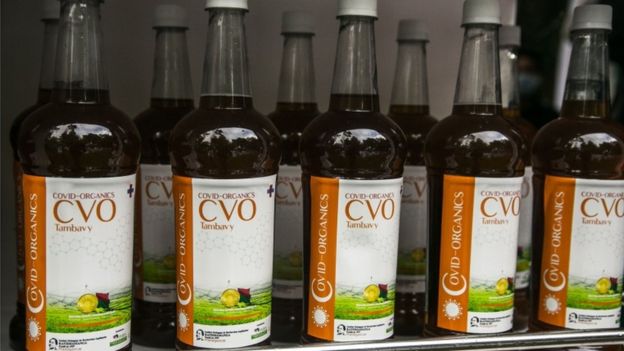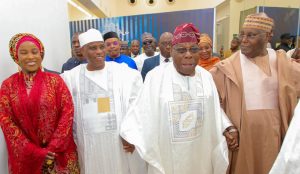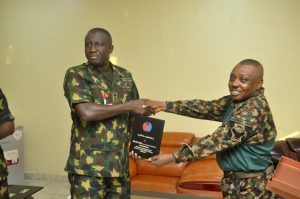
With 930 confirmed cases of Covid-19 on Wednesday, Nigeria recorded its worst single-day numbers of the deadly virus that has so far killed 1,200 people and infected a total of 75,062 since the first case was reported on February 28.
Wednesday’s figure beat that of December 11, which at 796 certified cases, was the highest incidence of the virus in a day.
Data from https://www.statista.com, which tabulated the number of cases from February 28 to December 9, showed that the third-highest single-day cases were recorded on July 1 with 790 people testing positive for Covid-19.
The uptick in number of positive cases since December confirmed the apprehension of the federal government that Nigeria is on the cusp of the second wave of the pandemic, which resulted in the collapse of the price of oil, Nigeria’s chief source of foreign exchange earnings, plunging the nation’s economy into its second recession in five years.
Since August 22 when Nigeria had 601 positive cases in a day, there has been a sharp decline in the number of those who tested positive for Covid-19 with the lowest figure of 37 confirmed cases recorded on October 21.
However, the number of confirmed cases began an ascent on December 11, rising to an all-time high figure of 796 confirmed incidents in a day.
However, barring any hiccups, Covid-19 vaccines will be available for administration to Nigerians from next month, the federal government has said.
Minister of Health, Dr. Osagie Ehanire, on Wednesday told State House reporters after the Federal Executive Council (FEC) meeting presided over by Vice President Yemi Osinbajo, with President Muhammadu Buhari participating virtually from Daura, that Nigeria had already signed up for access to the vaccines through the World Health Organisation (WHO) and Gavi.
According to him, the vaccines are not available for non-producing countries yet because the countries which invested in their production have made the administration of the vaccines to their citizens their first priority.
He explained that Nigeria signed up for the vaccine known as Covax, and it is expected that WHO and Gavi will mount pressure on the manufacturing countries to make the vaccines available to non-producers.
He said currently, a technical working group has been constituted and it is working on how to get the vaccines down to Nigeria. He also listed the various types of Covid-19 vaccines and their essential components.
According to him, “A technical working group is working on the question on the vaccine. We have signed up with the World Health Organisation and Gavi for access to vaccines immediately they are available. But you know that these vaccines are new and are in packets and the producers have not given any indemnity.
“These countries where these vaccines are manufactured, have of course, given themselves the priority to serve themselves, serve their own citizens first and we hope that the pressure from the World Health Organisation and Gavi will be able to get reserves for other countries that are not manufacturing and they will be able to attend to what will be signed up to.
“We signed up for advanced market participation in Covax. So, if we will be able to get our own, I think it will be in January. But there are two types of vaccines. There are those that have to be in ultra-deep freezers – the MRA type of vaccines. That is the freezer that must give you -80 degrees celsius
“There is another type that has to be in the deep freezer of -20 degrees, which is a deep freezer and there is another type that can be in minus two degree refrigerators. This is the regular refrigerator. The one that will be in regulator refrigerators is easy. We have them here.
“The one that will be in -20 degree refrigerators is also going to be possible because we also have the freezers here but the one that will be in ultra-cold freezers, we hardly have ultra-cold freezers in this country and to receive and store in those ultra-cold freezers will require that you purchase the ultra-cold freezers.”
Ehanire said the country is working on the cost of getting the vaccines, adding that with a population of 200 million, the country has the responsibility to acquire enough vaccines to adequately serve its citizens.
He said to get this done, the country is working with different groups of people to enable it to get enough vaccines from multiple sources. He identified one of the groups like the Russian and British team.
He explained that the country has entered into discussions with other groups, including one from the United Arab Emirates (UAE), which is procuring vaccines from China, and will be ready to make some available to Nigeria.
He added: “So, we are working on the cost. Which one shall we get first? Obviously, the one we can afford. Remember that we have 200 million citizens. We need to have a way to be able to get enough to be able to take care of our citizens. So, that means we must be able to get the vaccines that work well, with a good cost of storage and cost of delivery. That is the one we will like to get as soon as they are available.”
He said Nigeria also had bilateral discussions with manufacturers, explaining that some of them have written for further discussions.
“One of them, as I speak to you, is already having a discussion with the Ministry of Health and the one that British and Russia team are putting together,” he said.
The minister also expressed concerns about non-strict adherence to Covid-19 protocols, warning that only strict compliance could save Nigeria from witnessing what he described as the embarrassing second wave of the pandemic.



